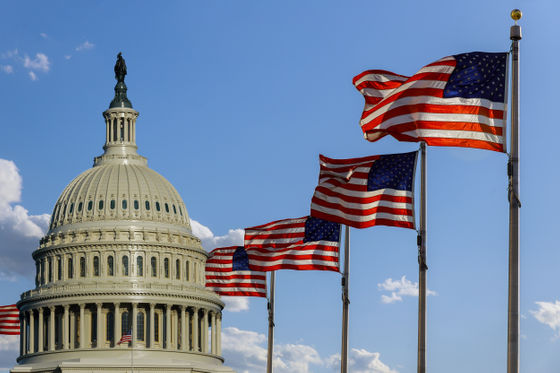President Trump's executive order suspending the TikTok ban may not override Congressional law and may not protect the company

by
Although President Trump signed an executive order to suspend the TikTok ban for 75 days, voices are being raised questioning its legal validity. The ban, passed by Congress and upheld by the Supreme Court, is already in effect, and companies that host or distribute the app may be in violation of the law even if President Trump's order is in place.
Trump signs executive order to halt TikTok ban - The Washington Post
https://www.washingtonpost.com/technology/2025/01/20/tiktok-trump-executive-order/
On April 24, 2024, former President Joe Biden signed the 'TikTok Ban Act,' which orders TikTok's parent company, ByteDance, to sell TikTok. With the enactment of this ban, TikTok will be prohibited from providing services and distributing apps unless it is sold to a US company by January 19, 2025.
President Biden signs TikTok ban bill, 270-day countdown begins until sale or withdrawal. What happened behind the unprecedented speed of the bill? - GIGAZINE

However, shortly after taking office on January 20, 2025, President Trump signed an executive order aimed at suspending the ban on TikTok for 75 days. The order instructs the Department of Justice to refrain from enforcing or penalizing TikTok companies for 75 days. The purpose of the order is to 'determine how to appropriately move forward in a manner that protects national security and avoids the sudden shutdown of a communications platform used by millions of Americans.'
Since President Trump announced he would be issuing this executive order, TikTok has partially resumed its services.
TikTok, banned in the US, to be restored by President-elect Trump - GIGAZINE

However, The Washington Post points out that the president will not be able to easily overturn the TikTok ban itself.
As the head of the executive branch responsible for enforcing the law, the President of the United States has a certain degree of discretion in enforcing the law. However, he does not have the authority to invalidate or overturn a formally enacted law by presidential order. The TikTok Ban Act, which currently regulates TikTok, was passed by an overwhelming majority by the US Congress, the legislative branch, signed by former President Biden, the head of the executive branch, and supported by the Supreme Court, which has judicial power. In other words, the restrictions based on the basic principle of the US Constitution, which states that even the President cannot unilaterally overturn a congressional act, also apply to the TikTok Ban Act.
President Trump also proposed a joint venture between the US and ByteDance, saying, 'TikTok has a lot of value if it's approved. If it's not approved, it has zero value. So if we create that value, shouldn't we be allowed to have half the rights?' he said, adding that the US could play a role in 'monitoring' the app.
President Trump presents a rescue plan for TikTok: 'Elon Musk or Larry Ellison will buy it and make it a joint venture with the United States' - GIGAZINE

However, according to The Washington Post, with the ban already in effect, companies that host or distribute apps could be in violation and could be held liable, regardless of President Trump's comments.
The TikTok Ban Act requires the complete elimination of 'foreign adversary control,' does not allow foreign companies like ByteDance to maintain even partial control, and prohibits them from having any operating relationship, so President Trump's joint venture proposal is likely to be limited by the TikTok Ban Act.
At the time of writing, ByteDance is 60% owned by US-based investment firms General Atlantic and Susquehanna International, with the remaining 40% shared between founders and employees. If the proposed joint venture goes through, ByteDance and its shareholders would be forced to give up majority ownership of the company they helped develop in order to avoid the TikTok ban.

By Anthony Quintano
Senator Tom Cotton, chairman of the Senate Intelligence Committee, warned after President Trump detailed his plans for TikTok that 'the companies could face liability to pay trillions of yen in fines under the law. In addition, some legal experts have argued that the deadline set by the law has already expired on January 19 and cannot be extended.
The Chinese government has recently softened its previous tough stance and shown a willingness to cooperate with the Trump administration to keep TikTok operating in the United States, but the specific form of the agreement remains unclear, The Washington Post noted.
Related Posts:
in Note, Posted by log1i_yk







